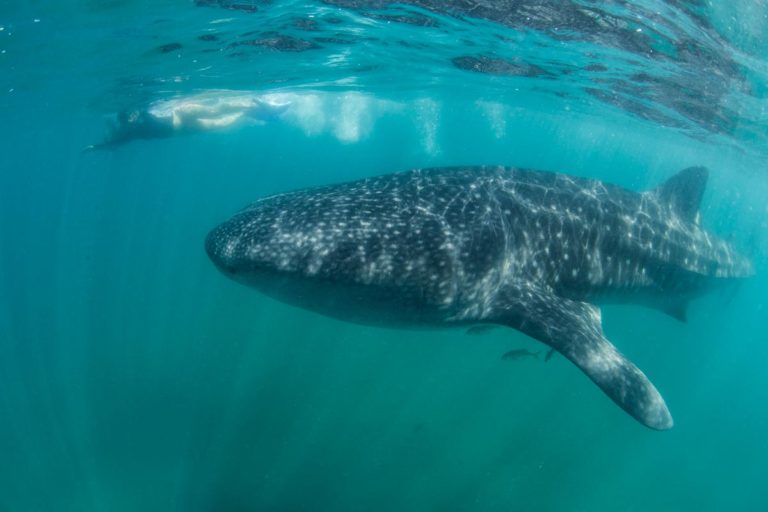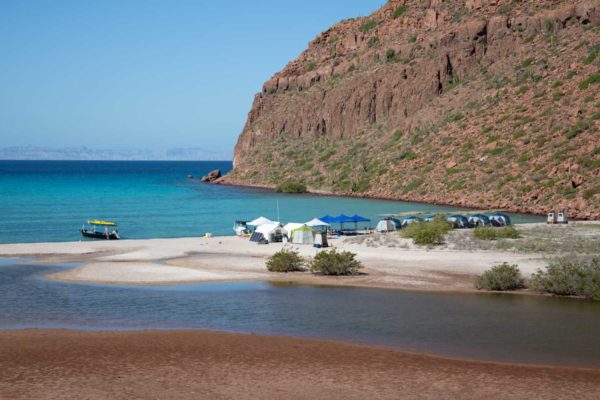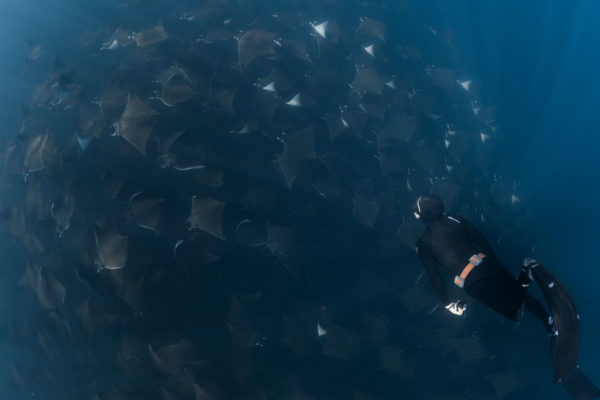November – April – Super Pangas
In the warm, crystal-clear waters just minutes from La Paz lies one of the most intact ecosystems in the world. Get ready to be inspired! Near El Mogote’s sand spit, the outer bay serves as a whale shark nursery and here you will be able to observe and swim with the biggest fish in the ocean! Whale sharks are filter-feeding carpet sharks that reach a length of 62 feet / 19 meters and may live even longer than humans.
This is a half-day journey to experience these gentle giants as they feed, hover and filter plankton for hours while enjoying a good cleaning by fish and remora along their ventral sides.
Your expert naturalist guide and professional boat captain both have received special training and are certified to manage responsible encounters that respect the habitat and feeding patterns of the animals.
About Sea of Cortez
The Sea of Cortez is the youngest and perhaps the richest body of water in the world, home to an abundance and diversity of marine life, with many species unique to Baja California. Visitors often see multiple species of whales on a single journey! You’ll get to explore some of the 244 islands that make up this amazing UNESCO World Heritage site.
Pricing: From US$135 (+ applicable taxes)



